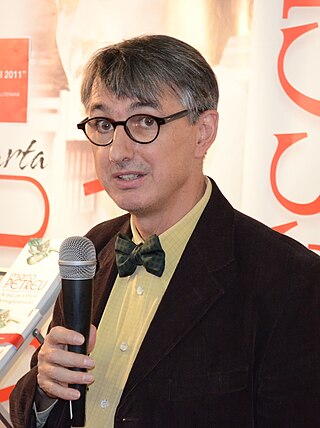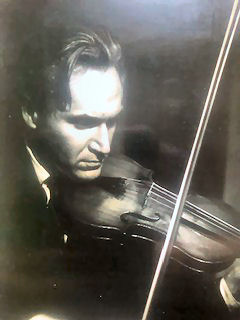Related Research Articles

The Social Democratic Party is the largest political party in Romania. It is also the largest social democratic political party in the country. It was founded by Ion Iliescu, Romania's first democratically elected president at the 1990 Romanian general election. It is currently part of the National Coalition for Romania (CNR), which is a big tent grand coalition comprising also the National Liberal Party (PNL). The CNR formerly included the Democratic Alliance of Hungarians in Romania (UDMR/RMDSZ) until mid June 2023.

The National Liberal Party is a Christian democratic and socially conservative political party in Romania. Re-founded in mid January 1990, shortly after the Revolution of 1989 which culminated in the fall of communism in Romania, it claims the legacy of the major political party of the same name, active between 1875 and 1947 in the Kingdom of Romania. Based on this historical legacy, it often presents itself as the first formally constituted political party in the country and the oldest of its kind from the family of European liberal parties as well.
Liberalism and radicalism are important political movements in Romania. Many political parties from these traditions have had important historical roles and substantial support, including representation in the Parliament of Romania. Not all Romanian political parties relevant to this tradition have explicitly described themselves as liberal or radical.

Gheorghe I. Tătărescu was a Romanian politician who served twice as Prime Minister of Romania, three times as Minister of Foreign Affairs and once as Minister of War (1934). Representing the "young liberals" faction inside the National Liberal Party (PNL), Tătărescu began his political career as a collaborator of Ion G. Duca, becoming noted for his anticommunism and, in time, for his conflicts with the PNL's leader Dinu Brătianu and the Foreign Minister Nicolae Titulescu. During his first time in office, he moved closer to King Carol II and led an ambivalent policy toward the fascist Iron Guard and ultimately becoming instrumental in establishing the authoritarian and corporatist regime around the National Renaissance Front. In 1940, he accepted the cession of Bessarabia and Northern Bukovina to the Soviet Union and had to resign.

Constantin Argetoianu was a Romanian politician, one of the best-known personalities of interwar Greater Romania, who served as the Prime Minister between 28 September and 23 November 1939. His memoirs, Memorii. Pentru cei de mâine. Amintiri din vremea celor de ieri —a cross section of Romanian society, were made known for the sharp critique of several major figures in Romanian politics.
Marian Munteanu is a former leader of the anti-government protests that took place in 1990 in Romania against the National Salvation Front (FSN). The anti-government protests were ended violently by the intervention of the miners from Jiu Valley. During the early 1990s, he was also the leader of the far-right political organization "Mișcarea pentru România".

Horia-Roman Patapievici is a Romanian physicist and essayist who served as the head of the Romanian Cultural Institute from 2005 until August 2012. Between 2000 and 2005, he was a member of the National Council for the Study of the Securitate Archives, supporting more openness regarding the files of the Securitate.
Dumitru Gheorghe Mircea Coșea is a Romanian politician, economist, diplomat, essayist, journalist and professor. A former member of the Party of Social Democracy (PDSR) until June 1997, he joined Teodor Meleșcanu and Iosif Boda in creating the short-lived Alliance for Romania party, which merged into the National Liberal Party (PNL) in 2002. In 1999, Coșea was among the members of Varujan Vosganian's grouping, the Union of Right-wing Forces, which also joined the PNL.

Dumitru Dămăceanu was a Romanian army officer in World War II, later promoted to brigadier-general, who played a predominant role in the royal coup of August 23, 1944.

Cătălin Marian Predoiu is a Romanian lawyer who served as the ad interim Prime Minister of Romania from 12 June to 15 June 2023, following the resignation of Nicolae Ciucă, having previously served from 6 February to 9 February 2012, following the resignation of Emil Boc. He had previously been the Minister of Justice of Romania since 29 February 2008.

Constantin Vișoianu was a Romanian jurist, diplomat, and politician, who served as Minister of Foreign Affairs at the end of World War II. He later emigrated to the United States, where he served as President of the Romanian National Committee.

Mihail Fărcășanu was a Romanian journalist, diplomat and writer. He was president of the National Liberal Youth from 1937 to 1946. Pursued by the authorities due to his anti-communist actions, he managed to flee the country in 1946, and was later sentenced to death.
Clerical collaboration with communist secret services occurred in some Eastern European countries during the Cold War. There were multiple reasons why certain clergy members chose to take this course of action. Some hoped to provide services to the government in exchange for a reversal of policies persecuting Christians. Others wished to buy favors from the authorities in order to advance their own careers, since the authorities could influence promotions within the Church hierarchies. Finally, there are claims that some clergy members were secret service agents from the beginning, working undercover.

Radu-Anton Câmpeanu was a Romanian politician who was also jurist and economist by profession, after graduating from the University of Bucharest (UB) in November 1945, specializing in constitutional right. During the interwar period and up until 1945, he was the leader of the National Liberal students' association at nationwide level.

The Commission for the Study and Evaluation of the Communist Totalitarian Regime of the Republic of Moldova was a commission instituted in Moldova by Acting President of Moldova Mihai Ghimpu to investigate the Moldavian SSR, the state which administered the country as a Soviet Socialist Republic from 1940 to 1991, and provide a comprehensive report with the purpose of condemnation of Marxism-Leninism as experienced by Moldovan people.

Andrei Eșanu is a historian, writer and researcher from the Republic of Moldova. He is a member of the Commission for the Study of the Communist Dictatorship in Moldova. He is part of the Academy of Sciences of Moldova, and was elected an honorary member of the Romanian Academy in 2011.
Anatol Petrencu is a politician, historian and academic from the Republic of Moldova. In 1990-1992 he was the dean of the Faculty of History of the State University of Moldova, and between 1998 and 2006 he was president of the Association of Historians of Moldova. Between 2006 and 2010 he was the president of the European Action Movement party. Since October 2010 he has been the director of the Institute of Social History "ProMemoria". Vice President of the Liberal Party.
Vasile Bahnaru was a Moldovan philologist.
Mona Octavia Muscă is a Romanian philologist and politician. A former member of the National Liberal Party (PNL) and of the Liberal Democratic Party (PLD), she was a member of the Romanian Chamber of Deputies for Caraș-Severin County from 1996 to 2004 and for Bucharest from 2004 to 2007. In the Călin Popescu-Tăriceanu cabinet, she served as Minister of Culture and Religious Affairs from 2004 to 2005.

The National Liberal Party was the first organised political party in Romania, a major force in the country's politics from its foundation in 1875 to World War II. Established in order to represent the interests of the nascent local bourgeoisie, until World War I it contested power with the Conservative Party, supported primarily by wealthy landowners, effectively creating a two-party system in a political system which severely limited the representation of the peasant majority through census suffrage. Unlike its major opponent, the PNL managed to preserve its prominence after the implementation of universal male suffrage, playing an important role in shaping the institutional framework of Greater Romania during the 1920s.
References
- ↑ Zamfirescu, Dinu (2019). O viaţă ...: Tudor Vișan-Miu în dialog cu Dinu Zamfirescu (in Romanian). Corint Books. ISBN 978-606-793-613-1.
- ↑ "Consiliul National pentru Studierea Arhivelor Securitatii". www.cnsas.ro. Retrieved 2021-10-13.
- ↑ "Acasă". IICCMER (in Romanian). Archived from the original on 2010-07-26. Retrieved 2021-10-13.